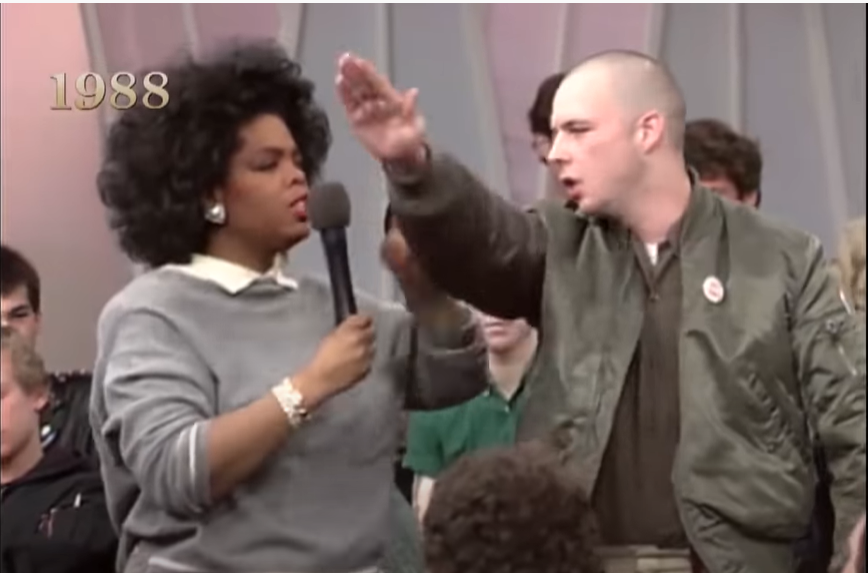
This Changed the “Oprah Winfrey Show” Forever: It Could Change America Too.
In 1988, a group of white supremacists offered talk show host, Oprah Winfrey a gift. The guests abruptly walked off her stage, after turning a Q&A into an angry confrontation. Oprah had invited them to confront their hate. But the group had their own agenda to spread their dark message in America.
Oprah vowed then, as she shared in a 2006 follow-up episode, that she would never again offer a platform to that sort of toxic energy. She said, “I realized at that moment, I was doing more to empower them than I was to expose them (2006).” It helped shape the direction of “The Oprah Show” forever and challenged millions of viewers to examine the negative forces they might have been empowering in their own lives.
Today, more than 30 years after those racists stormed off the stage in Chicago, millions of people have unlimited access to platforms that spread information more widely and more quickly than ever before. Individuals can retreat into their own spaces for perspectives that indulge their instincts. Short videos, cleverly edited to elicit certain emotions and opinions, can be consumed and shared by thousands within minutes. There are whole media ecosystems that thrive on outrage, expertly plucking and placing obscure ideas and groups into millions of living rooms.
Does this deeply divided information landscape dilute the benefits of Oprah’s big lesson? Or could the challenge to examine what we empower offer a path toward a more unified country?
If so, it might look something like a White House Press briefing in late January. A reporter asked Press Secretary Jen Psaki about the administration’s response to the controversy swirling around a certain congresswoman with ties to some of the baseless conspiracies at the heart of the January 6th attack on the United States Capitol.
Psaki’s response? Simply that conspiracy theories would not be elevated in the briefing room. It was a seemingly unremarkable answer that previews a greater solution—a blueprint for a way forward, should individuals and institutions choose to embrace it.
It’s a commitment to simply pause before we repeat, consume, share, legitimize, and empower certain ideas and to weigh the consequences of shining a light on what is otherwise unseen. Perhaps it is about sharing less of the world we don’t want and more visions of the world we do.
I’m not proposing we stop discussing the things that matter or pretend injustice, abuse, corruption, and pain don’t exist. Performative positivity and denialism are not pathways to peace. But I am curious about the effects of simply choosing to weigh our need to confront a thing with the risk of empowering it.
Perhaps it’s about purpose.
In 2006, Oprah broke her own rule when she invited back to the show two of the men who stormed off the stage in 1988. This time though, they shared stories of redemption. Mike Barret expressed shame for his former beliefs, admitting, “there are consequences to ideas.”
Maybe there’s a greater consequence to amplifying those ideas.
An old man told his grandson, “My son, there is a battle between two wolves inside us all. One is Evil. It is anger, jealousy, greed, resentment, inferiority, lies, and ego. The other is Good. It is joy, peace, love, hope, humility, kindness, empathy, and truth.”
The boy thought about it and asked, “Grandfather, which wolf wins?”
The old man quietly replied, “The one you feed.” ~ Author Unknown
~
~






Read 2 comments and reply